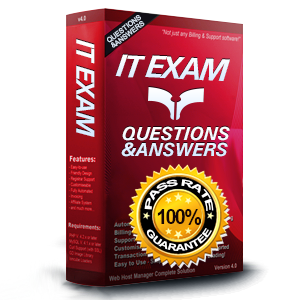
PROFESSIONAL-CLOUD-DATABASE-ENGINEER Exam Questions & Answers
Exam Code: PROFESSIONAL-CLOUD-DATABASE-ENGINEER
Exam Name: Google Cloud Certified - Professional Cloud Database Engineer
Updated: Apr 11, 2024
Q&As: 132
At Passcerty.com, we pride ourselves on the comprehensive nature of our PROFESSIONAL-CLOUD-DATABASE-ENGINEER exam dumps, designed meticulously to encompass all key topics and nuances you might encounter during the real examination. Regular updates are a cornerstone of our service, ensuring that our dedicated users always have their hands on the most recent and relevant Q&A dumps. Behind every meticulously curated question and answer lies the hard work of our seasoned team of experts, who bring years of experience and knowledge into crafting these premium materials. And while we are invested in offering top-notch content, we also believe in empowering our community. As a token of our commitment to your success, we're delighted to offer a substantial portion of our resources for free practice. We invite you to make the most of the following content, and wish you every success in your endeavors.

Download Free Google PROFESSIONAL-CLOUD-DATABASE-ENGINEER Demo
Experience Passcerty.com exam material in PDF version.
Simply submit your e-mail address below to get started with our PDF real exam demo of your Google PROFESSIONAL-CLOUD-DATABASE-ENGINEER exam.
![]() Instant download
Instant download
![]() Latest update demo according to real exam
Latest update demo according to real exam
* Our demo shows only a few questions from your selected exam for evaluating purposes
Free Google PROFESSIONAL-CLOUD-DATABASE-ENGINEER Dumps
Practice These Free Questions and Answers to Pass the Cloud Database Engineer Exam
Your team is building a new inventory management application that will require read and write database instances in multiple Google Cloud regions around the globe. Your database solution requires 99.99% availability and global transactional consistency. You need a fully managed backend relational database to store inventory changes. What should you do?
A. Use Bigtable.
B. Use Firestore.
C. Use Cloud SQL for MySQL
D. Use Cloud Spanner.
Your organization operates in a highly regulated industry. Separation of concerns (SoC) and security principle of least privilege (PoLP) are critical. The operations team consists of:
Person A is a database administrator.
Person B is an analyst who generates metric reports.
Application C is responsible for automatic backups.
You need to assign roles to team members for Cloud Spanner. Which roles should you assign?
A. roles/spanner.databaseAdmin for Person A roles/spanner.databaseReader for Person B roles/spanner.backupWriter for Application C
B. roles/spanner.databaseAdmin for Person A roles/spanner.databaseReader for Person B roles/spanner.backupAdmin for Application C
C. roles/spanner.databaseAdmin for Person A roles/spanner.databaseUser for Person B roles/spanner databaseReader for Application C
D. roles/spanner.databaseAdmin for Person A roles/spanner.databaseUser for Person B roles/spanner.backupWriter for Application C
You are designing a payments processing application on Google Cloud. The application must continue to serve requests and avoid any user disruption if a regional failure occurs. You need to use AES-256 to encrypt data in the database, and you want to control where you store the encryption key. What should you do?
A. Use Cloud Spanner with a customer-managed encryption key (CMEK).
B. Use Cloud Spanner with default encryption.
C. Use Cloud SQL with a customer-managed encryption key (CMEK).
D. Use Bigtable with default encryption.
Your organization has a ticketing system that needs an online marketing analytics and reporting application. You need to select a relational database that can manage hundreds of terabytes of data to support this new application. Which database should you use?
A. Cloud SQL
B. BigQuery
C. Cloud Spanner
D. Bigtable
Your company wants to move to Google Cloud. Your current data center is closing in six months. You are running a large, highly transactional Oracle application footprint on VMWare. You need to design a solution with minimal disruption to the current architecture and provide ease of migration to Google Cloud. What should you do?
A. Migrate applications and Oracle databases to Google Cloud VMware Engine (VMware Engine).
B. Migrate applications and Oracle databases to Compute Engine.
C. Migrate applications to Cloud SQL.
D. Migrate applications and Oracle databases to Google Kubernetes Engine (GKE).
Viewing Page 1 of 3 pages. Download PDF or Software version with 132 questions

